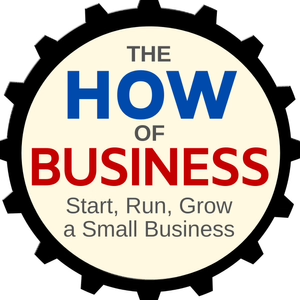
Manage Time. Live Intentionally, with Travis Ensley
06/26/18 • 46 min
Previous Episode

Meditation 101, with Light Watkins
My guest today is Light Watkins. Light is a former GAP fashion model. He started attending yoga classes and meditation circles back when he was doing casting calls in New York City. Since 1998, Light has been active in the wellness space, first, as a practitioner and then he's gone on quite a journey with meditation. This journey led to a trip to Northern India, to a little hamlet nestled in the foothills of the Himalayas to become a master in meditation. After about three months there and over thousands of hours of meditation, he completed his training. He now travels the world giving talks on happiness, mindfulness, inspiration, and meditation. He teaches meditation to A-list actors, big name entrepreneurs and a whole lot of regular people because he does it in a unique way. He just got a real practical approach. He introduces all of that in his most recent book called "Bliss More: How to Succeed in Meditation Without Really Trying" which was released earlier this year. Listen To The Podcast: RESOURCES: Bliss More Book: https://amzn.to/2kNy6bc INTERVIEW: Light, welcome to DREAM THINK DO. Thanks, man. I'm so excited to be here. Our mutual friend, Antonio Neves introduced us. Antonio started talking about your book Bliss More as you were launching it. I started to dig into it a little bit, and I was like, "Gosh, meditation can be such a heady thing." I loved how you were very transparent in your story. You didn't try to set yourself up as some mountain top guru; you're a regular guy who's had mountain top experiences through meditation, so I love that. It’s a real practical approach. It wasn't that you sat down and immediately had just these incredible experiences. Tell us a little bit about how your journey with meditation got started. Yes, sure. I got introduced to meditation through taking yoga classes. Everybody always talked about meditation. I was reading a bunch of the new age spiritual books that everyone's familiar with, the Eckhart Tolle book, Power of Now, The Seat of the Soul, The Celestine Prophecy, Conversations with God. There were always mentions of meditation or meditative states, and you figure, if something is hanging around for thousands of years, there's got to be something to it. Yeah, right. If it's been hanging out this long, then maybe, maybe I should dig into it just a little bit. My curiosity got the best of me, and I started going to these French meditation circles in New York City. This is back in the '90s, so I didn't know anyone else who was interested in this which kind of made it more interesting to me. You always want to feel like you're in on something that no one else has heard about yet so then you can then introduce everyone else to it. In those early days, it always frustrated me and fascinated me at the same time that I didn't feel like I was having the experience, the advertised experience. I wasn't going to nirvana. I wasn't having the bliss experience. You don't know what you don't know, so I didn't know that there were different approaches to meditation. I didn't know that there were monastic techniques and there were householder approaches. I was mainly doing monastic approaches, and that's one of the reasons why I was having such difficult experiences. After three years of knocking my head against the wall, I stumbled upon a teacher who showed me some of the householder, meaning regular people, approaches to meditation where you sit on a couch, or you sit in a comfortable chair, and you meditate there. That's where I finally found the bliss that had been eluding me for a very long time. Then everything made sense. It started to click. Well, I love that. A lot of people think of meditation, and they think of the discipline, the monk who deprives themselves of all things to have this experience in meditation. How would you say the householder approach is different?
Next Episode

Beating the Comparison Trap with Mitch Matthews
Well, hello there, and welcome to episode 183 of DREAM THINK DO. It's a deep dive, and that means it's just you and me diving in deep on a subject that seems to be growing in importance. We're going to talk about focusing on Beating The comparison Trap with Mitch Matthews. That's right. Breaking free from comparison. It's that thing that can hit us. It's been around since the dawn of time, but it's really amped up in this day and age of social media, where it's so easy to compare ourselves to others. And I asked for your help on this. Listen To The Podcast: RESOURCES: The How of Happiness book: https://amzn.to/2yxUBuv 7 Habits of Highly Effective People book: https://amzn.to/2K0UTzC EPISODE: So we're going to be sprinkling in wisdom from DREAM THINK DO-ers from around the world. You guys sent in some great insights and I appreciate it. So I'm going to be giving you a shout out as we go. Plus, we're going to dive into the science of comparison, a little bit of the brain science, but we're also going to talk through a three-step process for beating back comparison with a big old stick. I think we can all relate to having that negative feeling at some point. So we're going to be diving deep on the science and the solutions to beating the comparison trap. So let's put the hurt on comparison. I want to help you to break free, especially if you've ever felt the pain of comparison. Sound good? This is a tough subject. It's a big subject. I found it fascinating the more and more I dove into it, and I can tell you I'm at the front of the line here as well. It's something I've dealt with myself, and so it was a passion project for me to go after this. You guys submitted some great information, so stay tuned for that. But comparison has been around since the dawn of humanity. I mean poetry, philosophy, scripture, dating back thousands and thousands of years talk about the temptations and perils of comparison. It's not necessarily new, but a lot of research coming out to address how we compare ourselves and how we are getting hammered by comparison at new levels because of, and not limited to, social media. For example, a new study published in the Journal of Social and Clinical Psychology found that comparing our lives to others, especially when we do it and see it on social media, it's playing a big part in the rise of depressive symptoms and depression. Researchers specifically said it wasn't necessarily the website platform or just the social media necessarily itself that was causing the negative emotions, but more so where the comparison took us in our heads as the result of the content that we're bombarded with. Another group of researchers from Humboldt University in Berlin looked at Facebook use. They found that the more time people spend browsing Facebook, the more envious people got. They were able to isolate that emotion and link it specifically to Facebook use. And it is not just limited to Facebook. I'm guessing this doesn't surprise you. You've probably heard about a lot of this research. More importantly, you may have experienced it yourself. You've felt that comparison creep in and nail you, zap your joy, make you feel discontent, make you feel less than. And that's why I want to go after it. And some of what we talk about may surprise you because we're going to dig into the science of comparison and realize as we do that, that some comparison between yourself and others is good. That's right. It's actually good for you. So we're going to talk about where comparison is good and where the lines are and where it goes bad. More importantly, I’ll give you some specific strategies so you can overcome bad comparison and live in freedom. You want to break free of this so you can live your best life. And so we're going to give you the ABC's, literally a three-step process for breaking free of comparison. How does that sound? I hope you're excited. I know that I am.
If you like this episode you’ll love
Episode Comments
Generate a badge
Get a badge for your website that links back to this episode
<a href="https://goodpods.com/podcasts/dream-think-do-39691/manage-time-live-intentionally-with-travis-ensley-10074746"> <img src="https://storage.googleapis.com/goodpods-images-bucket/badges/generic-badge-1.svg" alt="listen to manage time. live intentionally, with travis ensley on goodpods" style="width: 225px" /> </a>
Copy




